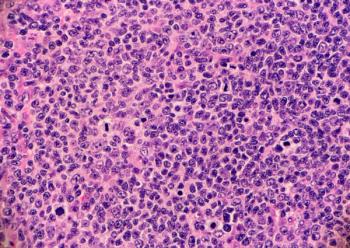
Endpoint Adjudication and the ICH E6
The Clinical Endpoints Adjudication Group and Ethical Clinical designed and implemented an industry survey to evaluate factors that drive the use of endpoint adjudication in clinical trials.
About a year and a half ago, we conducted a survey evaluating endpoint adjudication adoption in the clinical trials industry. We discovered that
This year,
Update on Changes in Endpoint Adjudication
At CBI’s endpoint adjudication conference, there were perspectives indicating that endpoint adjudication is necessary when the study’s endpoint is subjective, defintions are complex, there are regional variations, inexperienced investigators, and if regulatory authorities required it. While endpoint adjudication reduces bias, decreases data variability, improves quality, and identifies missed events, the process also increases study costs, and adds complexity (especially with source document management and transfer). There was also discussion that emphasized the importance of linking endpoint adjudication to studies’ primary objectives, and that the use of endpoint adjudication can enhance efficacy outcomes assessments in study data analysis. Moreover, there was discussion on the importance of endpoint adjudication oversight through key performance and risk indicators including disagreement rates, monitoring adjudicated events, and reviewing event timelines. What was clear is that endpoint adjudication cannot be efficiently executed without the use of eAdjudication technology.
Endpoint Adjudication Survey: Respondent Demographics
A total of 67 respondents participated in the endpoint adjudication survey. Figure 1 demonstrates that the largest proportion of respondents suggested that they are exposed to cardiovascular, oncology and CNS therapeutic indications. Figure 2 illustrates that Clinical Operations, Outcomes/Endpoint Adjudication and Clinical Science functions represented the majority of the sample, and Figure 3 shows that Biopharmaceutical enterprises, CROs and AROs also represented the largest proportion of the sample size. The majority of the respondents (69%) have been involved with endpoint adjudication, 28% have, and the remainder (3%) plan to get involved in the future.
Trends on Involvement with Endpoint Adjudication
We dug deeper into the data to evaluate statistically significant relationships between factors involving trends of who is using endpoint adjudication in clinical trials, and discovered a variety of observations with endpoint adjudication use in differing organization types, function, and therapeutic indications. Figure 4 shows that CROs, Biopharmaceutical companies, and AROs are most likely to use endpoint adjudication in their studies, and Figure 5 illustrates that Quality Assurance, Outcomes/Endpoint Adjudication, and Safety functions are also most likely to use endpoint adjudication in their studies. Additionally, there is a higher likelihood that Endocrinology and Cardiovascular therapeutic indications use endpoint adjudication in clinical trials, as delineated in Figure 6. Figure 7 indicates that Data Management, Clinical Science and Safety functions are most likely to feel that endpoint adjudication impacts study design.
Influences and Challenges Behind Endpoint Adjudication Adoption
When we asked respondents about the drivers and challenges behind endpoint adjudication adoption, we discovered that quality and regulatory authorities are the largest drivers, whereas operational execution and cost are the biggest challenges. Figure 8 demonstrates that respondents believed that the incorporation of endpoint adjudication improves scientific validity and improves data quality, whereas Figure 9 delineates that cost and complexity are some of the challenges veering study teams away from implementing endpoint adjudication processes. When it comes to executional challenges with endpoint adjudication, medical record collection and added study complexity were the most prominent (Figure 10). However, the benefits of executing endpoint adjudication involved better statistical signals (i.e., reduction in data variability), and supports GCP compliance requirements (Figure 11).
Impact of ICH-E6 Addendum on Endpoint Adjudication
We reviewed ICH-E6 Addendum Guidelines (Section 5.0 on Quality), and evaluated the impact of each of the sub-sections on endpoint adjudication in clinical trials (Exhibit 1). What is apparent from this analysis is that planning and implementing endpoint adjudication using traditional models (i.e., excel trackers, and documents, etc.) is not in line with ICH-E6 Addendum Guidelines; the Guidelines, rather, suggest that successful implementation must involve eAdjudication technology, especially when evaluating, controlling, communicating, reviewing, and reporting risk in endpoint adjudication project management. Moreover, when evaluating survey results in the previous section, it is clear that cost and complexity can be reduced by leveraging eAdjudication technology.
The Need for eAdjudication Technology
According to experts and survey results, data quality and regulatory pressures are driving endpoint adjudication adoption in clinical trials, especially with CROs, biopharmaceutical enterprises, and AROs. If properly planned, using endpoint adjudication in clinical trials leads to better outcomes assessments, reduced data variability (which means lower patient sample sizes), and enhanced data integrity. However, it is also apparent from the survey results, as well as the ICH-E6 Addendum that efficiently executing and properly overseeing endpoint adjudication in clinical trials requires eAdjudication technology. Without using eAdjudication technology, introducing endpoint adjudication increases study cost, management and complexity.
Moe Alsumidaie, MBA, MSF is Chief Data Scientist at Annex Clinical, and Editorial Advisory Board member for and regular contributor to Applied Clinical Trials.
References
http://www.appliedclinicaltrialsonline.com/clinical-trials-pros-arent-speed-endpoint-adjudication-solutions http://www.appliedclinicaltrialsonline.com/endpoint-adjudication-survey-reveals-cultural-challenges-and-lacking-regulatory-guidance
Newsletter
Stay current in clinical research with Applied Clinical Trials, providing expert insights, regulatory updates, and practical strategies for successful clinical trial design and execution.




